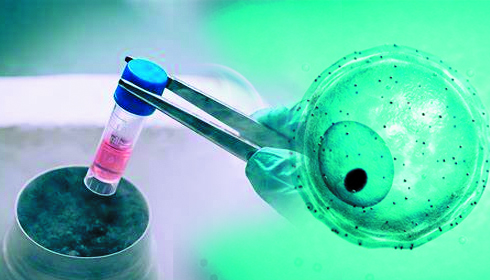
Largest British Egg Freezing Study Shows Success Rates Comparable to Routine IVF
A pioneering study from the London Women's Clinic has shown that egg freezing can be equally effective as standard IVF treatments. This study, the largest of its kind in Britain, examined the results of nearly 30,000 frozen eggs and discovered that success rates for live births are comparable to those attained with standard IVF, with factors such as the woman's age and embryo quality influencing the results.
The study, which appeared in the journal Reproductive Biomedicine Online, followed 299 patients who had frozen their eggs between 2008 and 2022. The overall live birth rate per embryo transfer was 26%, with success rates as high as 45% for women who froze their eggs before the age of 36.
"These results are comparable with those nationally recorded in routine IVF," stated Professor Nick Macklon, the study's principal author and Medical Director of the London Women's Clinic. "The findings are also consistent with those published in other similar research in the United States, implying that the concerns regarding the dependability of egg freezing are unwarranted. Taken together, the findings appear consistent, predictable, and reassuring."
The survey found that the number of women seeking egg freezing for personal reasons has increased significantly, from 150 in 2015 to over 800 in 2022. Despite this increase, only 14% of women returned to use their stored eggs, which is consistent with previous studies. Approximately one-quarter of women who fertilized their thawed eggs and transferred them as fresh embryos produced a baby, for a total live birth rate of 36% when including further frozen embryo transfers. For women who thawed and fertilized all of their eggs, the live birth rate was 30% per frozen or thawed embryo transfer. Examining embryos for chromosome abnormalities dramatically increased the success rate, resulting in a live birth rate of 40%, compared to 21% for untreated embryos. The study's findings call into question long-held beliefs about egg freezing, which frequently assume low success rates. The Human Fertilisation and Embryology Authority (HFEA) in the United Kingdom has previously warned about low success rates for frozen eggs, but this new data suggests a more optimistic future.
"These are encouraging results for those considering freezing their eggs for future use," Professor Macklon stated. "The current consensus based on these and other findings is that 10 to 15% of patients who originally froze their eggs in their later thirties will return to thaw and use them when they are, on average, between 40 and 42 years old."
The study underscores that egg freezing and thawing can provide a real possibility for women to achieve pregnancy and live birth at their own pace, with success rates comparable to typical IVF treatments when age and egg quality are taken into account.